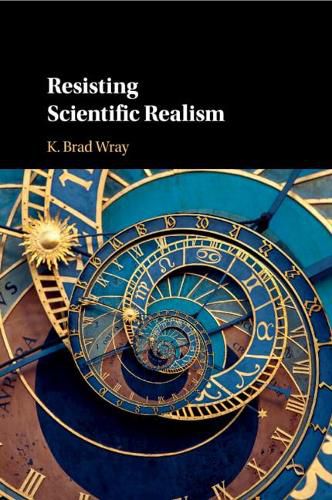Readings Newsletter
Become a Readings Member to make your shopping experience even easier.
Sign in or sign up for free!
You’re not far away from qualifying for FREE standard shipping within Australia
You’ve qualified for FREE standard shipping within Australia
The cart is loading…






In this book K. Brad Wray provides a comprehensive survey of the arguments against scientific realism. In addition to presenting logical considerations that undermine the realists’ inferences to the likely truth or approximate truth of our theories, he provides a thorough assessment of the evidence from the history of science. He also examines grounds for a defence of anti-realism, including an anti-realist explanation for the success of our current theories, an account of why false theories can be empirically successful, and an explanation for why we should expect radical changes of theory in the future. His arguments are supported and illustrated by cases from the history of science, including a sustained study of the Copernican Revolution, and a study of the revolution in early twentieth century chemistry, when chemists came to classify elements by their atomic number rather than by their atomic weight.
$9.00 standard shipping within Australia
FREE standard shipping within Australia for orders over $100.00
Express & International shipping calculated at checkout
In this book K. Brad Wray provides a comprehensive survey of the arguments against scientific realism. In addition to presenting logical considerations that undermine the realists’ inferences to the likely truth or approximate truth of our theories, he provides a thorough assessment of the evidence from the history of science. He also examines grounds for a defence of anti-realism, including an anti-realist explanation for the success of our current theories, an account of why false theories can be empirically successful, and an explanation for why we should expect radical changes of theory in the future. His arguments are supported and illustrated by cases from the history of science, including a sustained study of the Copernican Revolution, and a study of the revolution in early twentieth century chemistry, when chemists came to classify elements by their atomic number rather than by their atomic weight.